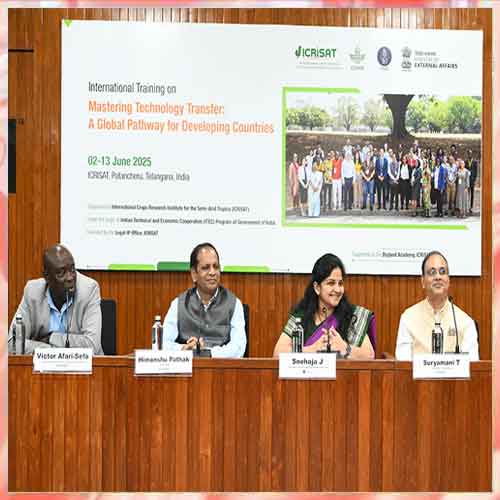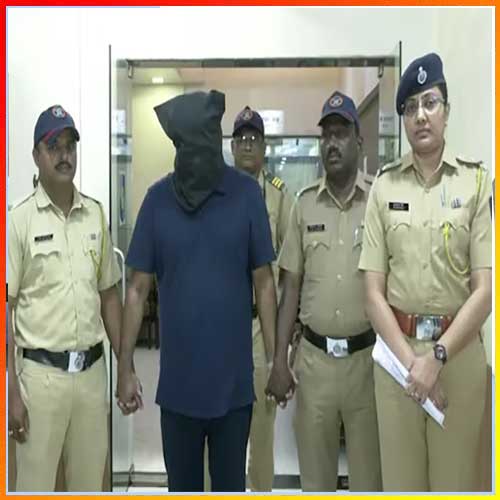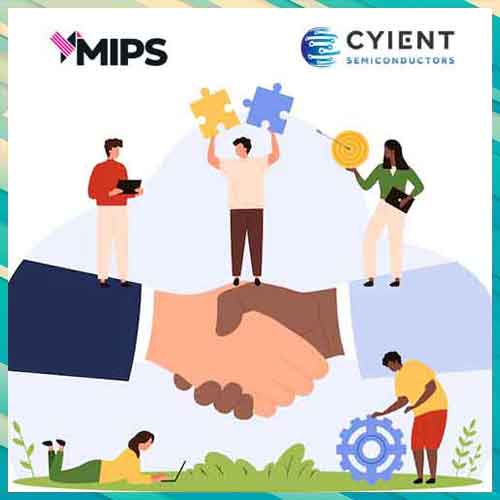
Under the ITEC initiative, ICRISAT trained 50 global professionals in mastering technology transfer, offering in-depth guidance on commercialization, valuation, legal systems, and innovation strategies to advance agricultural and scientific solutions in the Global South
The International Crops Research Institute for the Semi-Arid Tropics (ICRISAT) successfully concluded its two-week international training program, Mastering Technology Transfer: A Global Pathway for Developing Countries, equipping 50 professionals from 23 nations with tools to bridge the gap between research innovation and real-world implementation.
The training, held under the Indian Technical and Economic Cooperation (ITEC) program by the Ministry of External Affairs, focused on empowering participants—ranging from policymakers to researchers and industry professionals—with practical knowledge in technology valuation, commercialization, legal frameworks, and innovation management.

“Scientists around the world are developing breakthrough agricultural technologies, but many innovations never reach the farmers who need them most. This course aims to turn that challenge into opportunity,” said Dr Himanshu Pathak, Director General, ICRISAT.
Over 40 domain experts contributed to the program, including professionals from CGIAR institutions, the Alliance of Bioversity International and CIAT, IIT Jodhpur, ICFAI Law School, the Ministry of MSME, University of Johannesburg, and IKP Knowledge Park (IKP PRIME)—India’s prominent technology transfer office.
Dr Stanford Blade, Deputy Director General – Research and Innovation at ICRISAT, emphasized the reciprocal value of the training. “This program is a two-way exchange of knowledge. While participants gain vital skills, we also benefit from their field-level insights,” he noted.
Strengthening innovation and collaboration
Two key technical visits enriched the experience. Participants explored Genome Valley—India’s leading life sciences cluster—visiting Bharat Biotech and Sai Life Sciences to study tech transfer in biotech incubation, vaccine development, and drug discovery. A second visit to BITS Pilani, Hyderabad campus, demonstrated how educational institutions are advancing innovation and technology transfer.
ICRISAT’s Global Research Program Directors—Dr Sean Mayes, Dr Rebbie Harawa, and Dr Victor Afari-Sefa—offered strategic perspectives on innovation pathways, from crop breeding to farmer-level adoption. Legal frameworks and intellectual property considerations were also addressed in detail by Dr Surya Mani Tripathi, Global Head of Legal Services and course coordinator, who thanked the Ministry of External Affairs and the ITEC network for their continued support.
Speaking at the closing ceremony, Snehaja Jonnalagadda, Head of the Hyderabad Branch Secretariat, Ministry of External Affairs, praised the initiative: “The ITEC program remains a pillar of India’s development diplomacy, reinforcing our commitment to global capacity-building.”
Encouraging participants to serve as catalysts in their home countries, Dr Padmaja Ravula, Cluster Leader – Knowledge and Capacity Development & Gender and Youth at ICRISAT, urged them to champion technology transfer systems to drive sustainable development.
The program marks a significant step in strengthening South-South collaboration and accelerating innovation diffusion in agriculture and allied sectors across the Global South.
See What’s Next in Tech With the Fast Forward Newsletter
Tweets From @varindiamag
Nothing to see here - yet
When they Tweet, their Tweets will show up here.




























